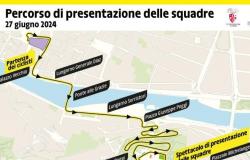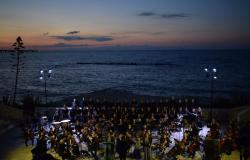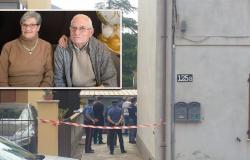After four processes was acquittedfrom the fourth section of Court of Assizes of Appeal of Naplesthe professor Paolo Russoended up on trial on charges of having abandoned his mother who later died.
Russo was accused, in particular, of having abandoned his mother – of whom he belonged legal guardian and who he had looked after for many years – to have her temporarily admitted to a nursing home for the elderly who, according to the accusatory hypothesis, did not have the necessary authorizations to accommodate non-self-employed individuals, such as the woman.
In the first and second degree the accused was convicted but then the Court of Cassation – accepting the defense’s grounds of appeal and rejecting the arguments of the conviction sentences – he annulled the sentence, referring it back to the Neapolitan Court of Appeal for a new judgment. And yesterday the judges of second instance, after eight years of trial, fully acquitted the accused for not having committed the crime. Satisfaction was expressed by the lawyer Domenico Ciruzzi, who assists Russo.
«I am really happy – declared the lawyer – first of all for the Professor Russo, a decent mana good man, a gentleman who cared for his mother alone for many years and who incredibly was accused, in fact, of having caused her death only because he would have temporarily admitted her to a health facility which – despite all the witnesses indicated as well-equipped, clean and in which the elderly were lovingly cared for – it lacked some authorizations required by law. One can only imagine the heartbreak of a loving son accused of having in some way contributed to the death of his mother.”
«But I’m happy – he said again Ciruzzi – also for the law and justice of our country because finally there Court of Appeal (and before that the Court of Cassation) expressed a decision and principles that already appeared very clear following the outcome of the first degree investigation. Well, I believe that this story is paradigmatic of how prejudice, conceptual biases and some unconscious psychological fears of the judge very often have a decisive influence on judgements. I say that this story is paradigmatic because this time the misleading influences of the media or the distorting interference of politics have nothing to do with it but perhaps only the judge’s inability to free himself from the most ancestral prejudices that dwell in everyone or rather in many of us. In fact, in general, there may be an inability to free oneself from prejudices which sometimes denotes an insufficiency of the humanistic culture of the judge which is completely obscured by competitive admission tests which are inadequate for the very high – and fundamental for democracy – function of judging”. concluded the professional.
© ALL RIGHTS RESERVED
Read the full article at
The morning





